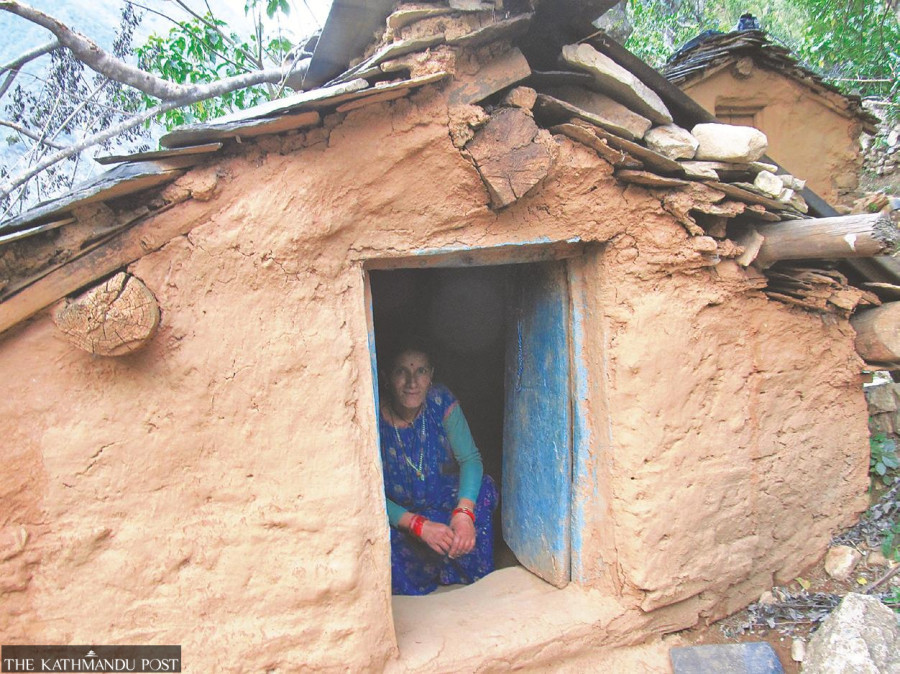Editorial
The return of the chhau
Our campaigns to educate the people about the ills of ‘chhaupadi’ are inadequate.
The Nepali state’s campaign to abolish chhaupadi—observing forced isolation during menstruation—has suffered from indifference and lethargy, leading to the return of the chhau sheds. When local-level governments took the lead to demolish chhau sheds four years ago after the death of Parvati Budha due to snakebite, it was hoped that the hinterlands, primarily in Karnali and Sudurpaschim provinces, would be free of chhau sheds. However, with the campaign losing steam, the sheds have started to pop up once again. And with this, there are fears that menstruating women will continue to die in the sheds as they have been dying for generations.
The chhau sheds are notorious for the deaths of women from cold, suffocation, snakebites and wildlife attacks. The women also face physical violence and sexual harassment when in isolation. Apart from deaths, women also face psychological stress from having to stay isolated in cramped, damp sheds for days at a stretch. The chhau sheds, therefore, are the spaces of dehumanisation of women and have no place in a civilised society. But as the return of the sheds has shown, doing away with superstition is easier said than done. A study by the Nepal Government 2010 showed that 19 percent of Nepali women practice chhaupadi, with the figure reaching as high as 50 percent in the Karnali and Sudurpaschim regions.
The chhaupadi system was outlawed by the Supreme Court in 2005, and in 2017, it was made punishable by up to three months in jail or a fine of Rs3,000 or both. But these legal provisions have failed to stop the practice. As per reports, the women are allowed to stay in their homes during their menstruation only when monitoring teams are in the villages. On other occasions, the women are forced by the family to live in the sheds. What’s more, the families are not even aware of the legal provisions disallowing the practice of chhaupadi. But this provision also has a problem: The women falling victim to the system cannot file a legal complaint against their family members. In rare cases when the women gather the courage to go against their families, they do not find social and legal support to continue their fight.
The fact that families are willing to sacrifice their members in the name of tradition shows that our campaigns to educate the people about the ills of chhaupadi are inadequate. Legal provisions are hardly enough to stop a practice rooted in cultural beliefs. Apart from the law, education on the need to do away with this archaic practice is of utmost importance. In the absence of solid educational campaigns, the enthusiasm to change an old practice, however dangerous, dies down. The government must, therefore, in coordination with local levels, invest massively in educational campaigns across the region. Chhaupadi is a practice that goes against universal human rights, and the government should be ruthless in abolishing it not just legally but socially and culturally as well.




 9.6°C Kathmandu
9.6°C Kathmandu














